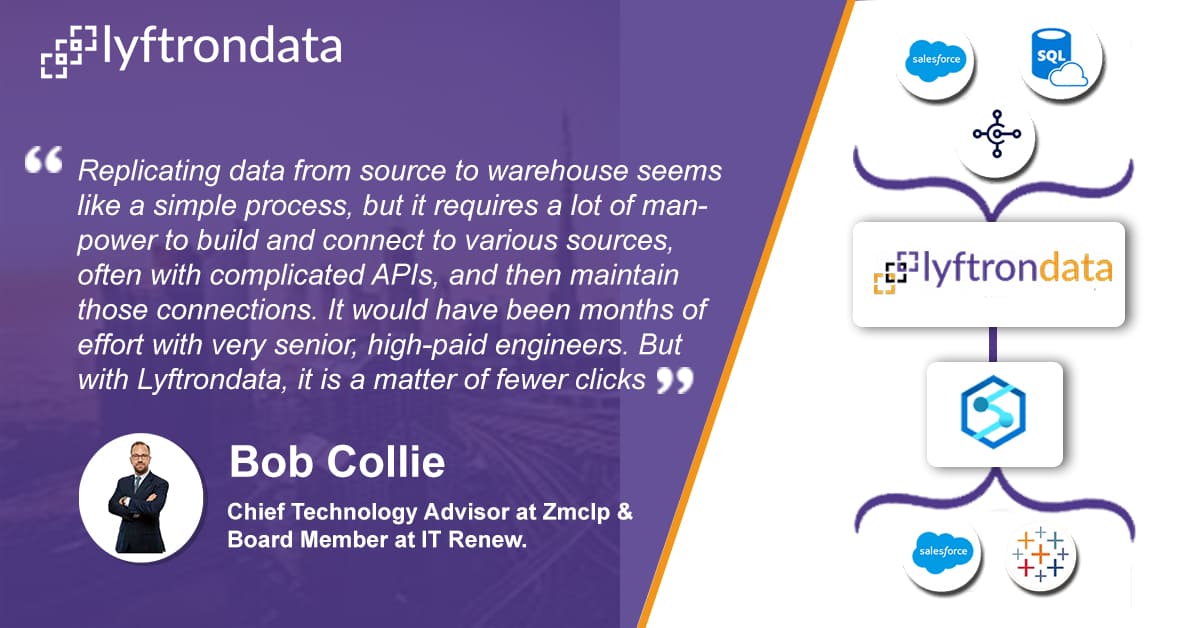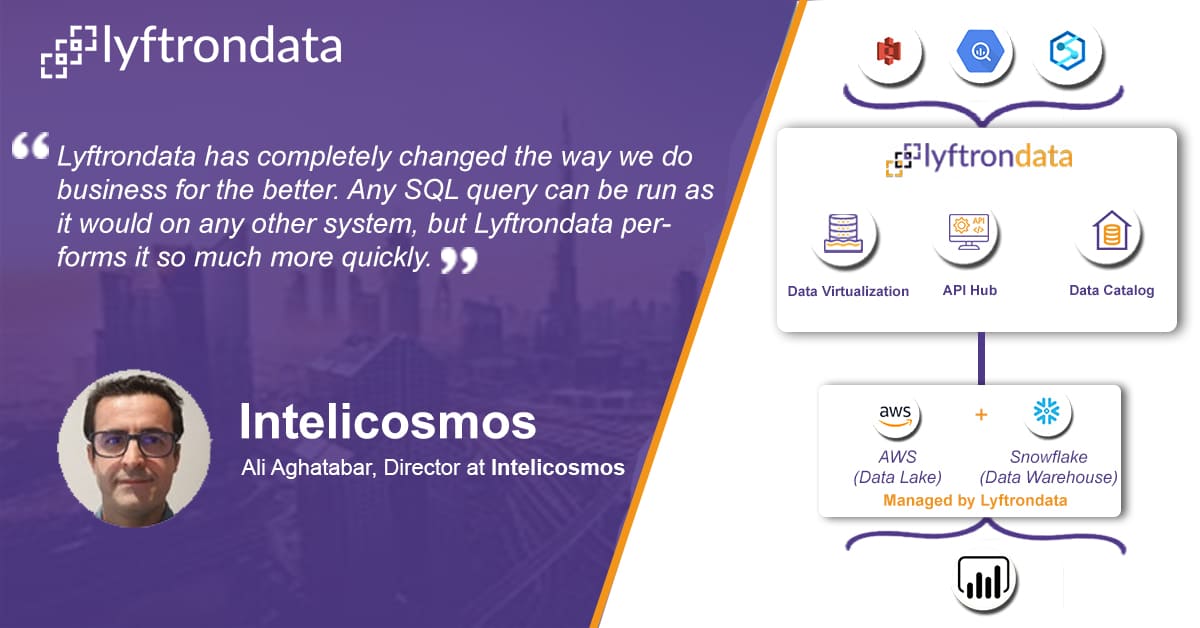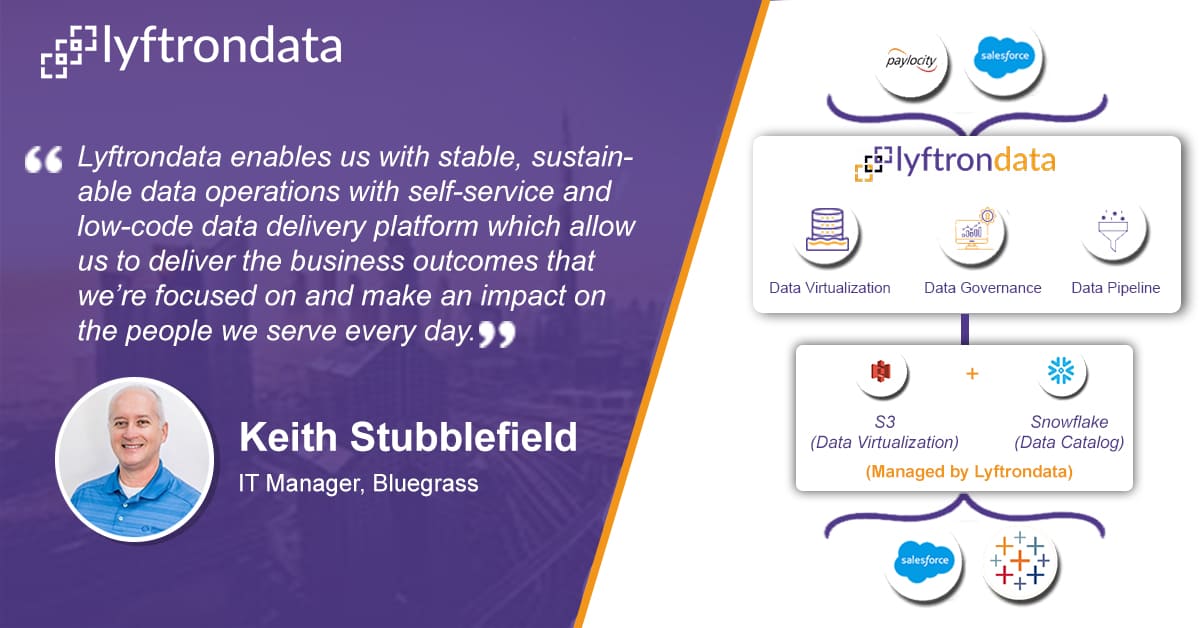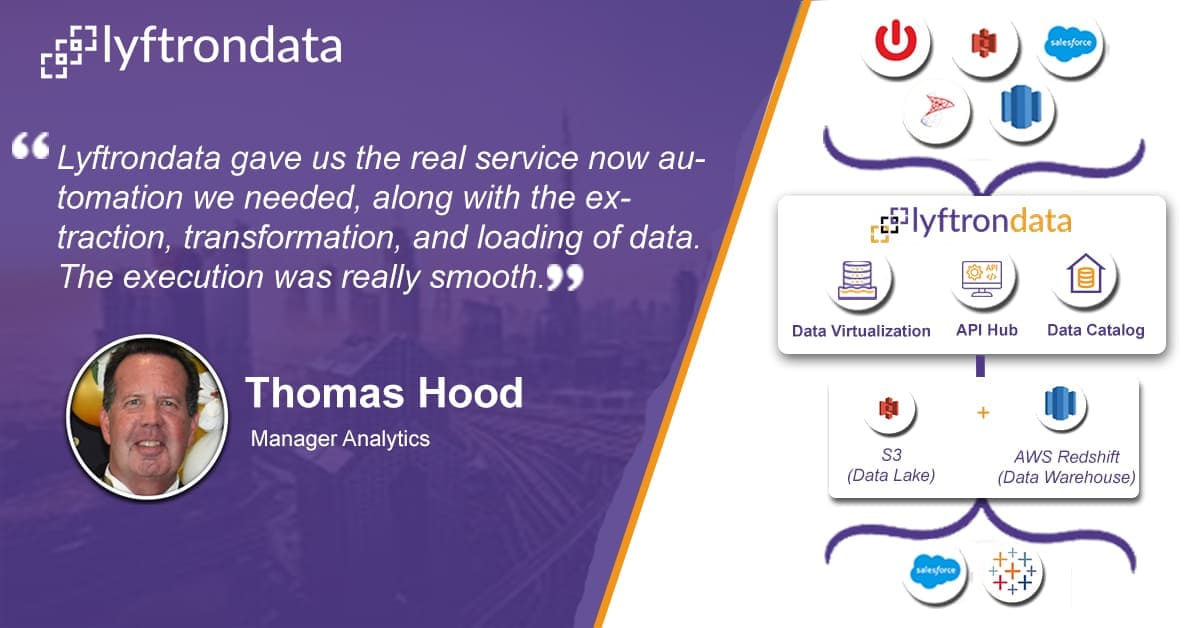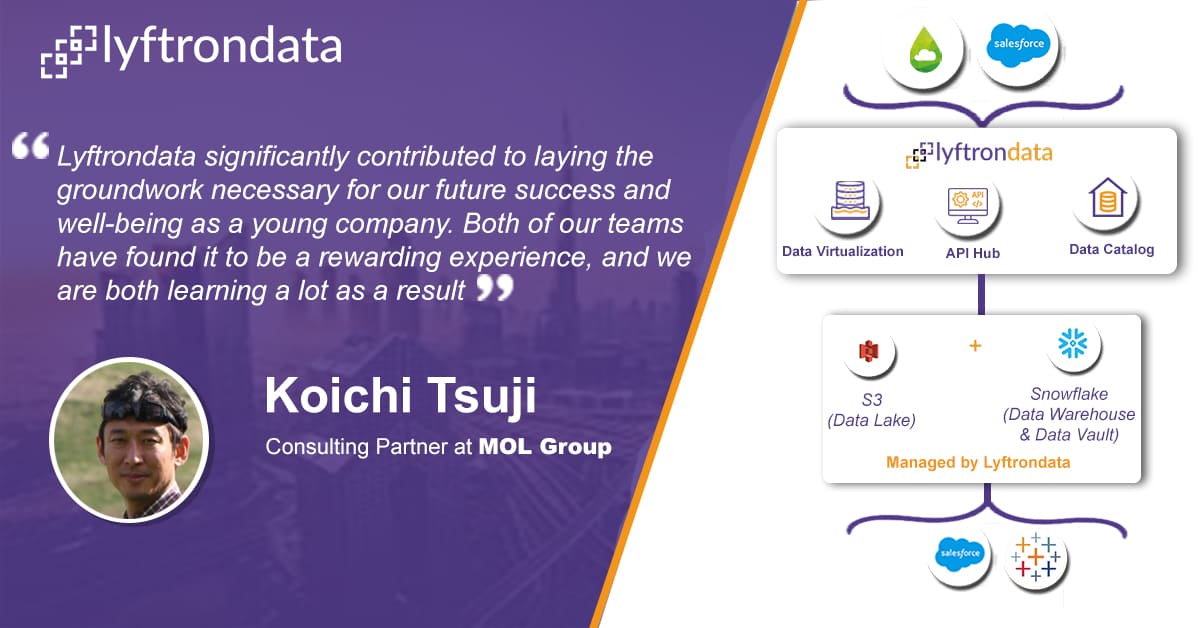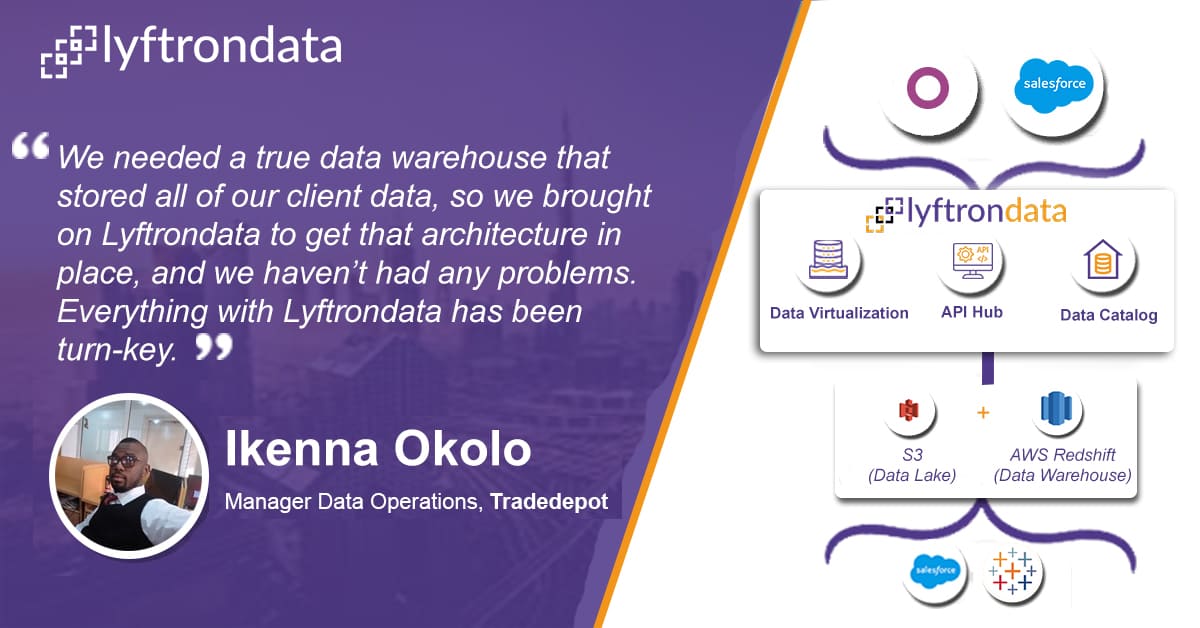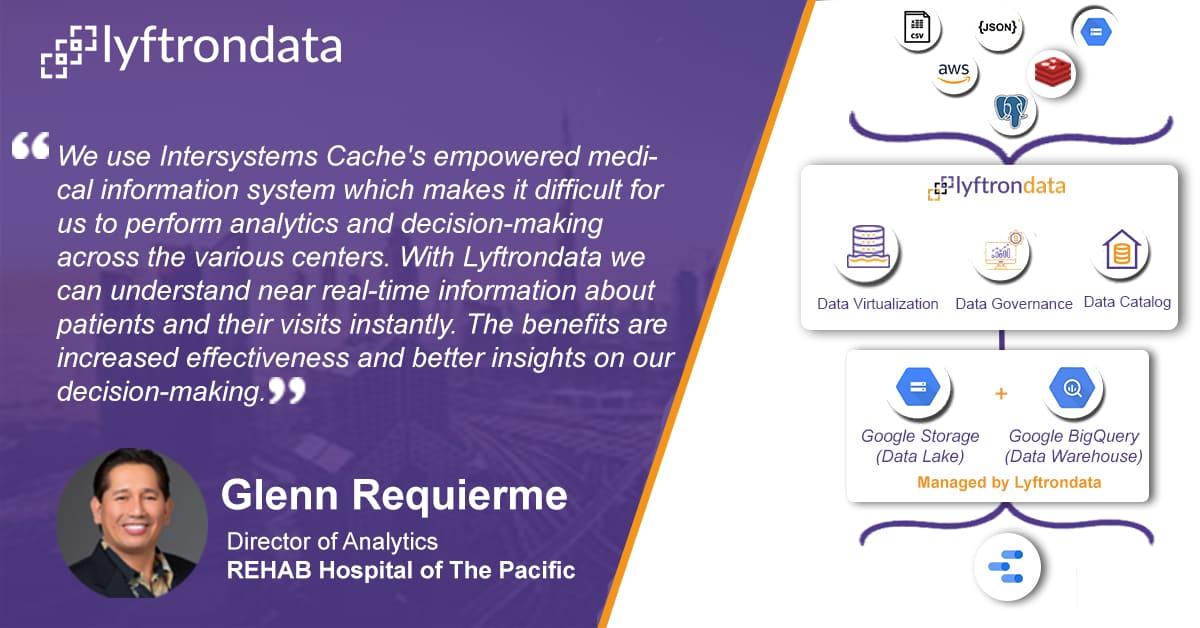200X Acceleration at
1/10th of the cost
Zero
maintenance
No credit card
required
Zero coding
infrastructure
Multi-level
security
Simplify Perbasive SQL integration in
4 simple steps
Create connections
between Perbasive SQL and targets.
Prepare pipeline
between Perbasive SQL and targets by selecting tables in bulk.
Create a workflow
and schedule it to kickstart the migration.
Share your data
with third-party platforms over API Hub
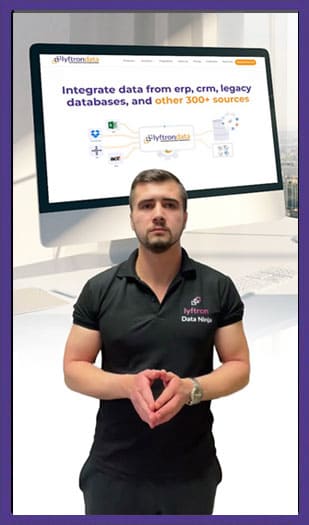
Why choose Lyftrondata for Perbasive SQL Integration?


Simplicity
Build your Perbasive SQL pipeline and experience unparalleled data performance with zero training.

Robust Security
Load your Perbasive SQL data to targets with end-to-end encryption and security.

Accelerated ROI
Rely on the cost-effective environment to ensure your drive maximum ROI.

Customer's Metrics
Track the engagement of your customers across different channels like email, website, chat, and more.

Improved Productivity
Measure the performance of your team and highlight areas of improvement.

360-degree Customer View
Join different data touch points and deliver personalized customer experience.
Hassle-free Perbasive SQL integration to the platforms of your choice
Migrate your Perbasive SQL data to the leading cloud data warehouses, BI tools, databases or Machine Learning platforms without writing any code.
Hear how Lyftrondata helped accelerate the data journey of our customers
FAQs
What is Perbasive SQL?
Pervasive SQL is a relational database management system (RDBMS) developed by Pervasive Software, which was known for creating efficient, scalable database solutions. The database combines traditional relational database features with the performance of an indexed file system, making it suitable for applications that require fast, transactional data access.
What are the features of Perbasive SQL?
Cross-Platform Support:
It runs on various operating systems, such as Windows, Linux, and NetWare.
Embedded Database:
Pervasive SQL is often used in embedded systems, as it is lightweight and efficient.
Scalability and Performance:
It is designed to handle both small and large-scale databases, offering fast read and write performance, particularly in environments requiring frequent transactions.
Integration with Business Software:
Pervasive SQL is often used in conjunction with business applications, particularly in the accounting, payroll, and ERP spaces.
What are the shortcomings of Perbasive SQL?
Limited Modern Feature Set:
Lack of Advanced Features: Compared to modern RDBMS platforms (e.g., PostgreSQL, MySQL, or SQL Server), Pervasive SQL lacks advanced features such as built-in support for modern data types (JSON, XML), advanced analytics functions, and complex indexing strategies (e.g., partial or functional indexes).
No Native Cloud Support: Pervasive SQL was not originally designed with cloud architectures in mind. It lacks the robust cloud-native features that modern databases like Amazon RDS or Google Cloud SQL offer.
Limited Community and Ecosystem:
Smaller Developer Community: Unlike more popular databases (e.g., MySQL, PostgreSQL), Pervasive SQL has a much smaller user base and developer community, which translates to fewer resources, support forums, or open-source tools and plugins.
Fewer Third-Party Integrations: While it supports common protocols like ODBC, it lacks the extensive library of third-party integrations that other modern databases enjoy, such as cloud-based data pipelines, ORM libraries, and analytics tools.
Data Security and Compliance:
Limited Native Security Features: Compared to modern databases, Pervasive SQL might lack advanced security features like built-in encryption, role-based access controls (RBAC), and auditing. This could be a drawback for organizations operating under strict data governance and compliance requirements, such as GDPR or HIPAA.
Make smarter decisions and grow your sales with Lyftrondata Perbasive SQL integration





